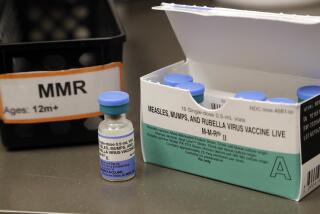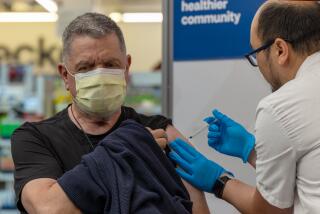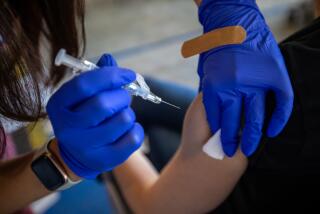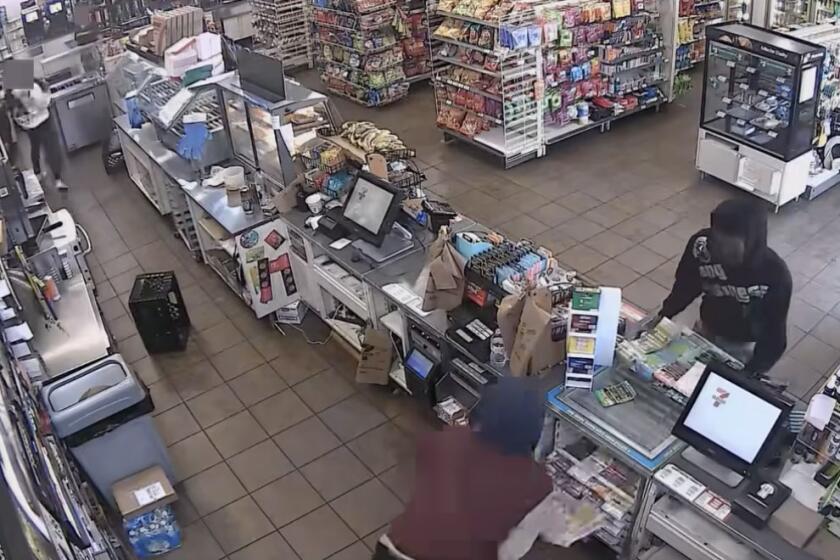Ebola Q&A: How would the virus be handled in Los Angeles?
How would Los Angeles County deal with a suspected Ebola case?
Any hospital in Los Angeles County would be able to treat the patient, said Dr. Jeffrey Gunzenhauser, the county health officer. All that’s required is a hospital room with its own bathroom.
Really? No special plastic-wrapped isolation unit is needed?
Yes, really. Ebola is not transmitted through the air, like the flu. “They’re not coughing,” Gunzenhauser said. You’d have to touch someone with Ebola, or touch an infected bodily fluid, such as saliva, blood, sweat, vomit or urine, to get the virus.
But what about the 1995 movie “Outbreak,” in which Dustin Hoffman was in a germ-free suit and helmet?
That fake disease was transmitted through the air.
What will doctors and nurses do to prevent getting infected?
Wear gowns, gloves, face masks and goggles.
If health officials are so confident that Ebola won’t be a problem in the United States, why is it such a problem in west Africa?
Many victims aren’t receiving care until they’re very sick. Hospitals there aren’t as good at keeping health workers protected from illness. And there’s a cultural tradition where loved ones touch the body of a dead family member, putting the family at risk of infection.
How would officials confirm an Ebola diagnosis?
The Los Angeles County Department of Public Health has a lab in Santa Fe Springs that can test samples for Ebola.
Would a patient with Ebola be moved to a higher-level hospital?
Any hospital can treat an Ebola patient. There’s no specific treatment for the virus, so the hospital would focus on keeping the patient hydrated, perhaps provide antibiotics, and control internal and external bleeding.
What’s the survival rate?
One estimate for the survival rate in west Africa was 30%, Gunzenhauser said, but in other Ebola outbreaks, the survival rate varied widely -- from 10% to 80%. Gunzenhauser said he suspects the survival rate would be higher in the United States, given better medical care here, and the likelihood the patient would already be healthier by the time he or she was in the hospital.
If I recently visited west Africa and I feel ill, do I have Ebola?
Here’s what the county says: “If you recently visited one of these countries and had contact with someone infected with Ebola, you should visit your doctor and discuss your travel history. If you visited one of these countries, but you did not have contact with anyone infected with Ebola, you should take your temperature twice a day. If you get a fever or other symptoms within 21 days of your return to the U.S., visit your doctor and discuss your travel history.”
For more breaking news, follow me on Twitter: @ronlin
More to Read
Start your day right
Sign up for Essential California for news, features and recommendations from the L.A. Times and beyond in your inbox six days a week.
You may occasionally receive promotional content from the Los Angeles Times.







